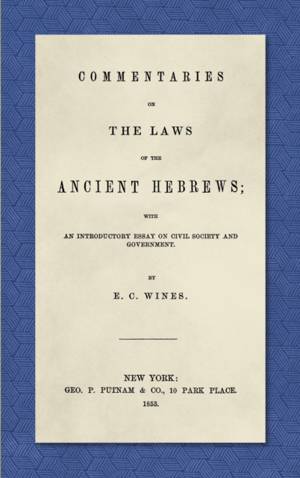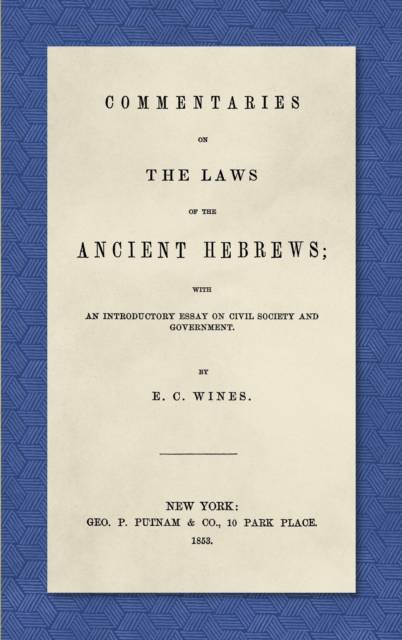
- Retrait gratuit dans votre magasin Club
- 7.000.000 titres dans notre catalogue
- Payer en toute sécurité
- Toujours un magasin près de chez vous
- Retrait gratuit dans votre magasin Club
- 7.000.000 titres dans notre catalogue
- Payer en toute sécurité
- Toujours un magasin près de chez vous
Commentaries on the Laws of the Ancient Hebrews (1853)
With an Introductory Essay on Civil Society and Government
E C Wines
Livre relié | Anglais
39,45 €
+ 78 points
Description
Wines's book was well-received by contemporary readers; Benjamin Butler, Levi Woodbury and William Kent were among its admirers. It begins with the assumption that "next to the birth and mission of Jesus Christ, the existence and institutions of the Hebrew people are the most important event in universal history" (Preface, iii). Its exploration of the Hebraic experience finds a senate, commons, and Chief Magistrate. The divine origin of these institutions is emphasized, along with their relation to the social and legal order. xvi, 640 pp.
Spécifications
Parties prenantes
- Auteur(s) :
- Editeur:
Contenu
- Nombre de pages :
- 646
- Langue:
- Anglais
Caractéristiques
- EAN:
- 9781584775270
- Date de parution :
- 10-09-19
- Format:
- Livre relié
- Format numérique:
- Genaaid
- Dimensions :
- 152 mm x 229 mm
- Poids :
- 1111 g







